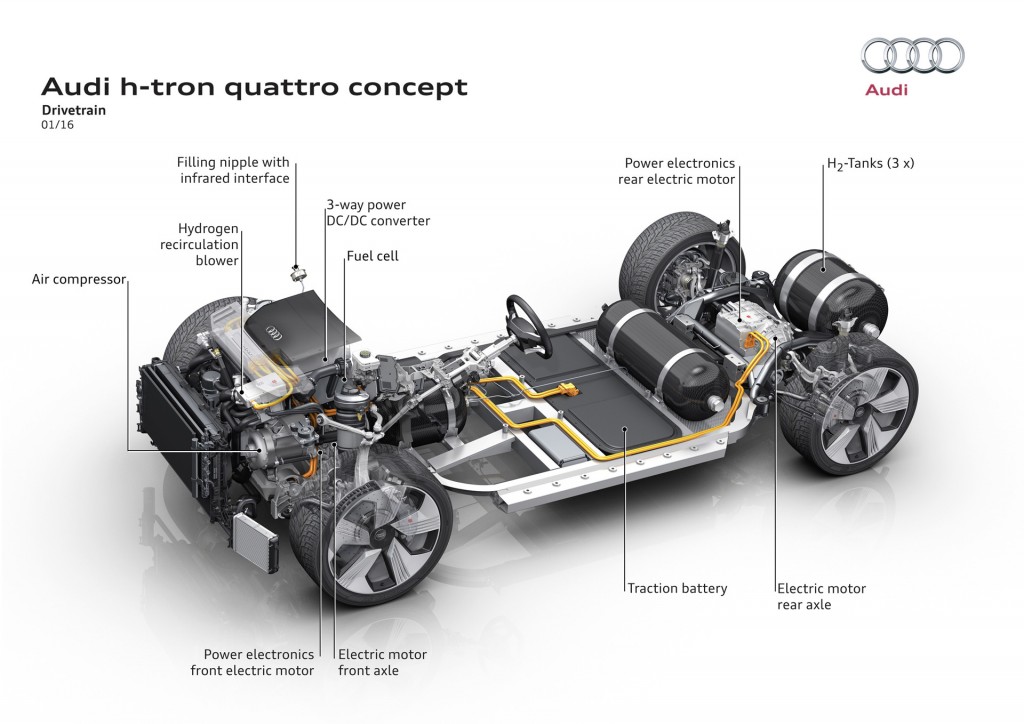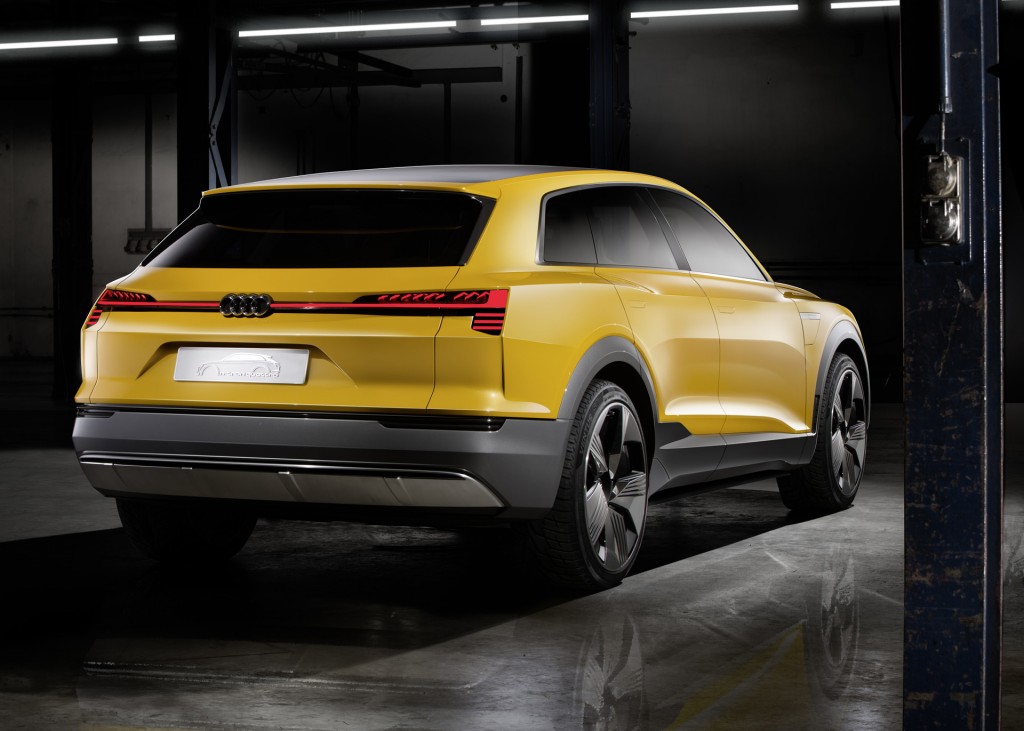Although Audi plans for a slew of new electric cars, fuel-cell technology is far from dead at the German luxury brand.
According to an Autocar report on Friday, Audi has serious concerns about sourcing battery materials for electric cars responsibly and meeting customer demands for range and charging. That has led Audi to spearhead hydrogen fuel-cell development once again. Per the report, Audi will resume development under its h-tron program and Audi will be the source of any major breakthroughs within VW Group.

Audi h-tron quattro concept, 2016 Detroit Auto Show
Audi Chairman Bram Schot said the goal is to speed up development for fuel cell vehicles, which have largely taken a backseat to electric cars in recent years. Toyota and Hyundai are two players with production fuel cell vehicles that are either on sale (Toyota) or prepping for sale (Hyundai) in select markets. General Motors also teased plans for a hydrogen fuel cell pickup truck for U.S. Army use and partnered with Honda for future fuel cell research and production.
Schot also confirmed the brand will debut new fuel cell prototype car later this year, and said a limited-run fuel cell vehicle could be offered via a lease program no later than 2021. Audi isn't taking an official position, but Schot thinks FCVs can enter volume production in the second half of the next decade.

Audi h-tron quattro concept, 2016 Detroit Auto Show
Any new fuel cell technology won't be exclusive to Audi, however. The German luxury brand partnered with Hyundai last June to cross-license the technology for future vehicles. The terms of the partnership call for both companies to share expertise and patents. Eventually, the two want to bring production fuel cell vehicles to market quicker. Audi has shown two fuel cell concepts in the past: the A7 h-tron and the h-tron crossover concept. However, both never materialized as Audi poured more resources into its electric car portfolio.
Audi's concerns over material sourcing may be valid. As more automakers make the switch to zero-emission cars, raw materials for batteries will become that much more important. Hydrogen fuel cells, on the other hand, could be more sustainable. Fuel cell refueling times are similar to gasoline-powered vehicle, though hydrogen infrastructure remains a major hurdle.